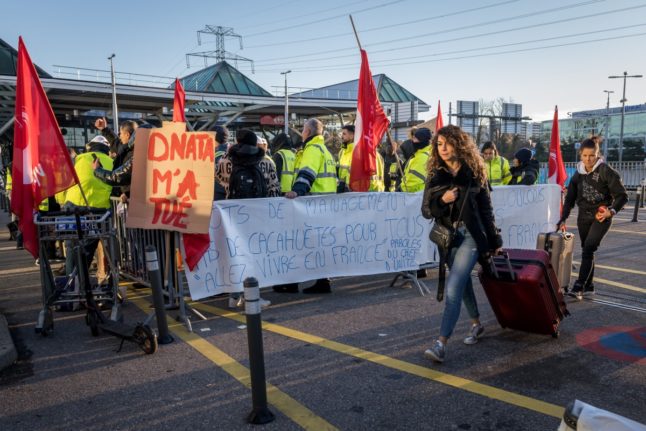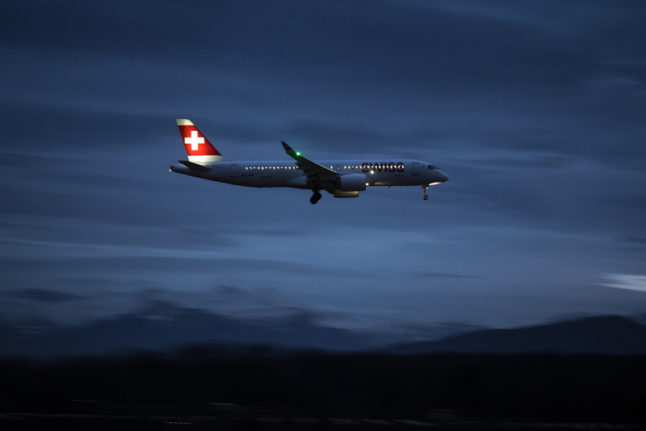A deal has been reached to end an hours-long strike by ground staff at Geneva airport, which had caused numerous flight delays and cancellations during the holiday rush.
“Victory!”, the SSP public sector union said on X, formerly Twitter, shortly before midday.
The workers began their strike about eight hours earlier, at 4 am (0300 GMT), demanding “dignified working conditions and decent wages” from their employer, the Dubai National Air Travel Agency (dnata).
The employees “have succeeded in repelling attacks on their retirement fund and in obtaining improved salaries, indemnities and overtime compensation”, SSP said.
Dnata, an Emirati airport service provider, confirmed in a statement “the resolution of the industrial action”, adding that its employees had returned to work at noon.
Around 80 strikers had gathered in front of the airport before dawn, wearing bright yellow safety vests and brandishing union flags and posters with messages like: “Dnata is killing me” and “Precarious work means grounded flights”.
Luggage left behind
Geneva airport stressed Sunday that it had not been involved in the dispute between dnata and its employees, and said it regretted that the strike had gone ahead while negotiations were ongoing.
The airport said six flights had been cancelled as a result, while some others had been delayed by more than an hour.
In addition, “a number of flights were operated without loading or offloading luggage”, the statement said.
READ MORE: Flights delayed as Geneva airport workers go on strike
Prior to the deal, airport spokesman Ignace Jeannerat told AFP that only flights assisted by dnata personnel had faced problems.
“A majority of operations are going very smoothly,” he said.
Dnata reportedly counts around 600 staff at the airport who handle various ground operations, including ticketing services and baggage handling, for a number of international airlines such as British Airways, Air France and KLM.
Jeannerat said dnata had been tasked with assisting 85 of the 417 flights scheduled for Sunday, a day when the Geneva airport was expecting 52,000 passengers to travel through.
All flights handled by dnata’s competitor Swissport “are functioning normally… Zero problems”, he said.
Pay hike, bonuses
According to the union, around half of the dnata staff had agreed to take part in Sunday’s strike, demanding a five-percent salary hike.
After several rounds of negotiations, the parties had agreed to the three-percent wage increase proposed by the company, SSP said in a statement.
The deal also provides for a 500-Swiss-franc ($584) bonus in January, it said, meaning a total rise of more than four percent on average.
SSP, which had accused dnata of exerting “pressure” and threatening to fire striking staff, announced those threats had been dropped and the company had agreed to pay the workers for the hours they were on strike.
Dnata said Sunday’s agreement “reinforces our dedication to maintaining a strong social partnership, fostering a cooperative working environment, and ensuring the continued success of our company”.



 Please whitelist us to continue reading.
Please whitelist us to continue reading.
Member comments